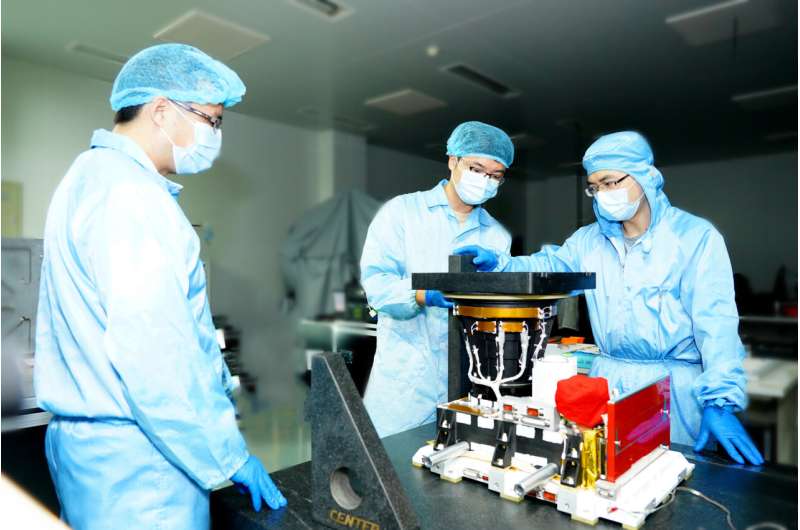
An atmospheric environment monitoring satellite was sent into space by the Long March-4C rocket lifting off from the Taiyuan Satellite Launch Center in Shanxi Province, north China early Saturday.
Five atmospheric environment monitoring payloads are carried on the satellite orbiting the Earth, three of which are developed by the Hefei Institutes of Physical Sciences (HFIPS) of the Chinese Academy of Sciences, namely environmental Monitoring Instrument (EMI), Directional Polarization Camera (DPC) and Particle Observation scanning Polarization Meter (POSP), working independently or collectively to monitor the air pollutants at global scale.
With a maximum field of view of 2,600 kilometers, it can cover the entire earth in one day and has a minimum spectral resolution of 0.6 nanometer, enabling EMI to accurately identify unique information in the absorption spectra and then detect and monitor polluted gases such as nitrogen dioxide, sulfur dioxide and formaldehyde.
For DPC and POSP, researchers at HFIPS proposed an innovative detection program called “Crossfire,” which combines the spatio-temporal distribution of global atmospheric aerosols and clouds obtained by DPC instrument and the high-precision atmospheric aerosol parameters obtained by the POSP instrument across orbit.
The “Polarized Crossfire” detection program of DPC and POSP is used for the first time worldwide to achieve quantitative observation of PM2.5, haze and other particulate pollution, thus meeting the needs of global climate change research, atmospheric environment monitoring, and high-precision atmospheric correction of remote sensing data.
As the world’s first satellite to detect carbon dioxide via laser technology, the atmospheric environment monitoring satellite has entered orbit. While going around the earth, it provides data support for China’s atmospheric environment monitoring, global climate change research, crop yield estimation, and agricultural disaster monitoring. Saturday’s launch was reportedly the 416th mission of the Long March rocket family.
Explore further
Satellite payloads soar into space with liftoff of Long March-4C rocket (2022, April 18)
retrieved 19 April 2022
from https://phys.org/news/2022-04-satellite-payloads-soar-space-liftoff.html
part may be reproduced without the written permission. The content is provided for information purposes only.